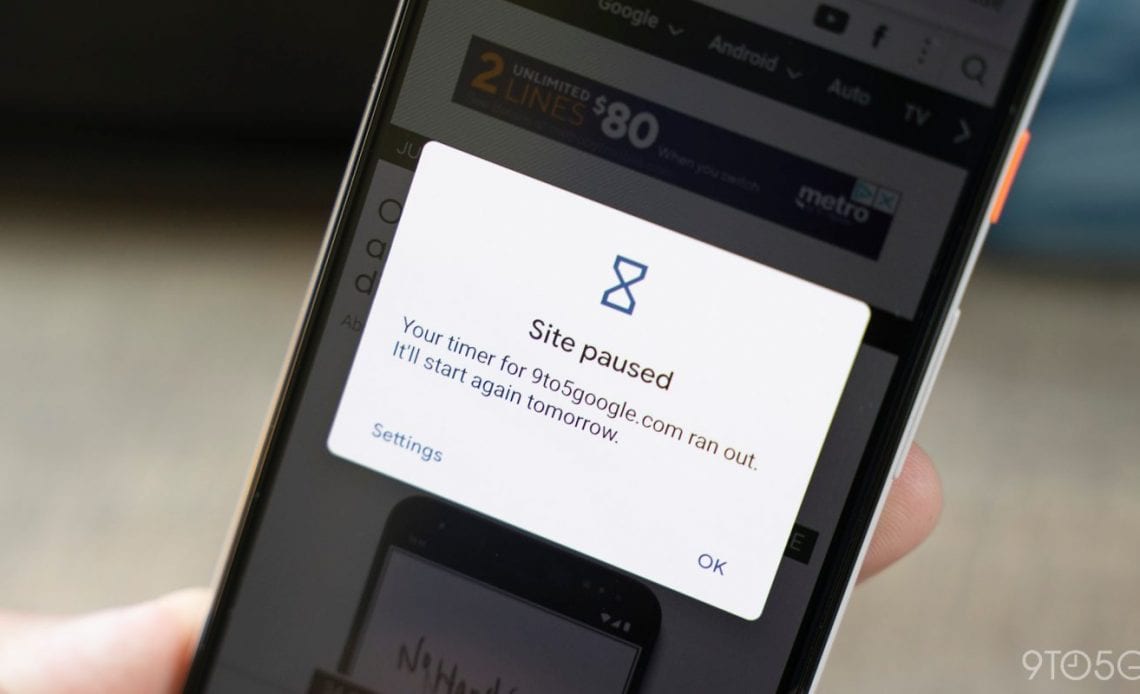
Early this year, we found evidence that Google was integrating Digital Wellbeing with Chrome for Android, starting with Android Q. Now, as of the latest Chrome Canary for Android update, the Digital Wellbeing features are live, offering per-site usage data and site timers.
When we first discovered Digital Wellbeing’s arrival in Chrome, the Android Q Beta had not launched yet, leaving us no way to test the new features. By the time Android Q Beta 1 rolled out in March, Google had locked away the Digital Wellbeing integration, temporarily.
This morning, notes Chrome Canary received an update (78.0.3870.0) which includes a new flag that enables sharing statistics about your web browsing with Digital Wellbeing on Android Q devices.
Share Usage Stats with Digital Wellbeing
When set, enables sharing of per-domain usage stats with the Digital Wellbeing app on Android, and allows Digital Wellbeing to suspend access to websites in order to enforce user-defined time limits.- Android
Once you’ve enabled the flag and restarted Chrome, head over to the Digital Wellbeing app, either from the app drawer or in the Android Settings app. In the Dashboard view, a new option will appear below Chrome Canary, inviting you to “Show sites you visit.”
Tapping this option lets you know a little bit about what information you’re sharing with Digital Wellbeing and what information is being sent to Google before you enable it. One thing you’ll be comforted to know, that isn’t explicitly mentioned, is that your Incognito browsing is not shared with either Google or the Digital Wellbeing app.
Should you choose to share the data, you’ll be treated to a breakdown of the different sites you browse and how much time you spend on each of them. Using this view, you’ll be able to set individual timers for each site, as your needs may be.
Just like with app timers, you receive warnings when your allotted time is running out, and once your time is up, your browsing session is immediately cut short. Should you need to continue using that website, you can hop over to an Incognito tab, as, again, your Incognito browsing is not shared with Digital Wellbeing.
Considering the current version of Chrome Canary is 78, we’re not likely to see Digital Wellbeing integrated into Chrome Stable until version 78 as well. Currently, Chrome 78 is scheduled to release in late October, certainly well after the official launch of Android Q.
Check out 9to5Google on YouTube for more news:
Author:
Source: 9TO5Google
Tags:



